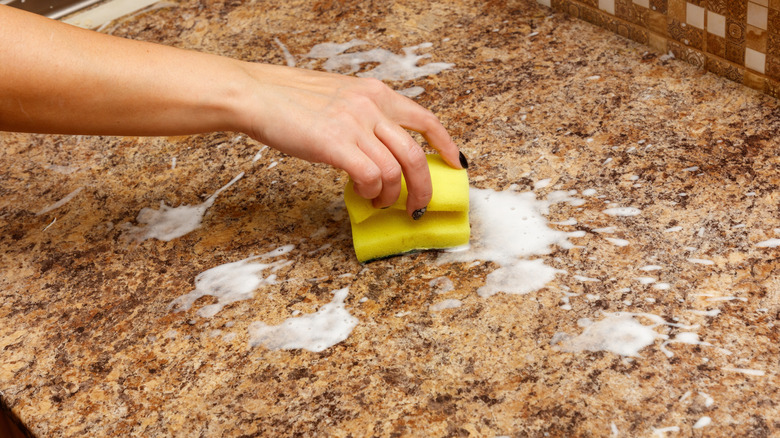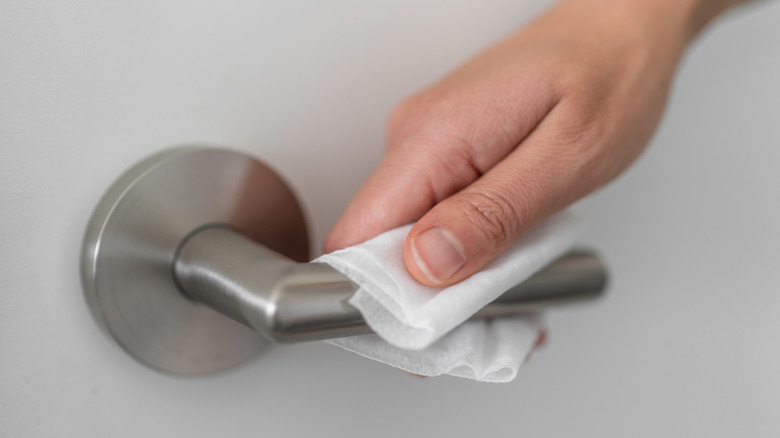Why Cleaning With Dish Soap Isn't Really Disinfecting Your Home
Dish soap is arguably one of the most important cleaning ingredients you can have on hand. Not only is it essential for cleaning the dishes in your kitchen sink, but soap and water are also a good way to clean countertops, doorknobs, and other types of hard surfaces. However, while dish soap is considered an effective cleaner, but it cannot technically disinfect surfaces around your home. This all boils down to the differences between cleaning and disinfecting agents; the latter has the capability of directly killing germs on contact.
While dish soap cannot disinfect surfaces, this doesn't mean it's an invaluable ingredient. On the contrary, soap is an important tool to help clean everyday messes because of its ability to physically remove dirt and break down some germs. It's also particularly notable for being able to cut through grease on your dirty dishes. Aside from common surfaces, there are unexpected things you can clean with dish soap, too. Cleaning surfaces with soap should be done on a daily basis, but you don't need to disinfect every day unless surfaces are exposed to viruses or bacteria.
While an effective cleaning agent, dish soap cannot kill germs on contact
Dish soap can technically kill germs to some degree, thanks to its pin-shaped molecules that can break through hydrophobic viruses and bacteria. This ability also requires the help of warm water as well as scrubbing to effectively break both germ molecules and dirt. That being said, there are also some things you should never clean with dish soap to be aware of, including windows, toilets, hardwood floors, and carpet.
Disinfectants, on the other hand, kill germs on contact. This means that the ingredients work without the addition of water or scrubbing. For this reason, if you need something that can kill germs without additional scrubbing, you may consider commercial disinfectants. These are especially helpful in preventing the spread of bacteria and viruses, such as if a member of your household is currently ill. For disinfecting sprays or wipes to kill germs on surfaces, you'll need to allow the area to stay wet with the product for several seconds or minutes. Refer to product labels for instructions on this end.
Finally, if you're wondering whether it's better to clean or disinfect surfaces in your home, the answer is sometimes both. While disinfecting is the only way to truly kill germs on contact, you still have to clean surfaces before you disinfect them. Always clean dirt and debris first with soap and water, and then follow up with a disinfectant as needed. Disinfecting is a good way to kill any germs left behind on surfaces after you've cleaned them with soap and water. Aside from knowing the key differences between cleaning and disinfecting, it's worth understanding the main difference between sanitizing and disinfecting, too.

